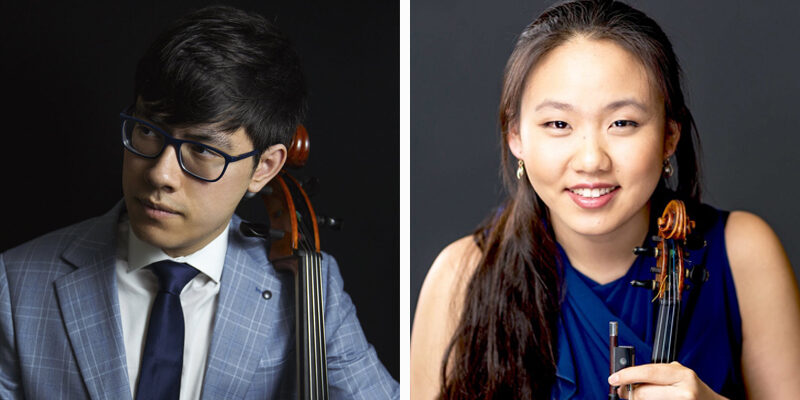VC INTERVIEW | Co-Founder Susan Barbash on the Uniquely Special Origins of the Barbash Bach Competition
With a sole focus on the unaccompanied string Sonatas, Partitas and Suites of J.S. Bach, the Final Round will stream LIVE here on The Violin Channel at 1:00PM (ET) on Wednesday, December 1
The Violin Channel recently discussed the uniqueness of the upcoming Lillian and Maurice Barbash J.S. Bach Competition with its co-founder Susan Barbash.
The Final Round of this year's competition will take place in-person at Long Island's Stony Brook University, in New York, on December 1 and will be streamed LIVE here on The Violin Channel.
"This competition is unusual in that the participants are only required to play one sonata, suite, or partita of Bach," 2021 jury member, cellist Colin Carr previously told The Violin Channel. "It’s such a simple format: two movements for the first round, and the whole piece for the final. But isn’t that telling enough?"
"The competitors may play on modern or baroque instruments and bows, on instruments with four, five, or six strings, tuned in fifths, fourths, or a combination," he added. "As competitions go, this is perhaps the most humane I have come across!"
Susan, you founded the competition with your siblings Cathy and Shepard in 2019 to honor your parents and their lifelong support of the arts. Can you tell us more about your parent’s devotion and the mission of the competition?
Though they were not musicians themselves, our parents were passionate music lovers, as were their own immigrant parents. My dad liked to tell a story about how he would fight with his dad over what they would listen to on the radio: the Metropolitan Opera Saturday Broadcast (my grandfather’s choice) or the Yankee game (my dad’s preference). On my mother’s side there is the oft-told story about her penniless grandfather seeing a grand piano in a rich man’s house and vowing that someday, he too would own a grand piano. Our parents, in turn, passed on this love of music to us, and eventually became committed advocates for the arts.
Our mother was one of Long Island’s pre-eminent arts presenters. She presented a chamber music series that featured the best in the business: The Beaux Arts Trio, Music from Marlboro, Peter Serkin’s Tashi, and even The Philip Glass Ensemble. For over 30 years, she produced the NY Philharmonic’s Free Summer Parks Concert at Long Island’s Heckscher State Park. Thousands of people attended each year…for many, it was their first introduction to classical music.
My parents also served together on several orchestra boards; they commissioned music for Yo-Yo Ma and Emanuel Ax, and they financed numerous music residencies and concert outings for students in their hometown. I don’t think it ever occurred to them that they should establish a competition.
This competition is our way of thanking them for all they did for us and their community. It is our way of honoring their memory and of continuing their advocacy for the arts.
Why is philanthropy and giving back to your community so important to you and your family?
Our parents were first-generation Americans whose own parents had come to this country with nothing. Educated in New York City public schools, and by NYC’s free colleges (Hunter and CCNY), they went on to achieve the "American Dream." They realized how incredibly lucky they were and more importantly, how they had benefited from community and civic philanthropy themselves.
Once they had the means, they gave back — with both their time and money — it was a moral imperative. Still, when people would express their gratitude for my parents’ support of the arts, my dad would shrug and say that he was just practicing “enlightened self-interest.” He wanted to raise his family in a culturally vibrant community so, of course, he felt that he personally benefitted from his philanthropy.
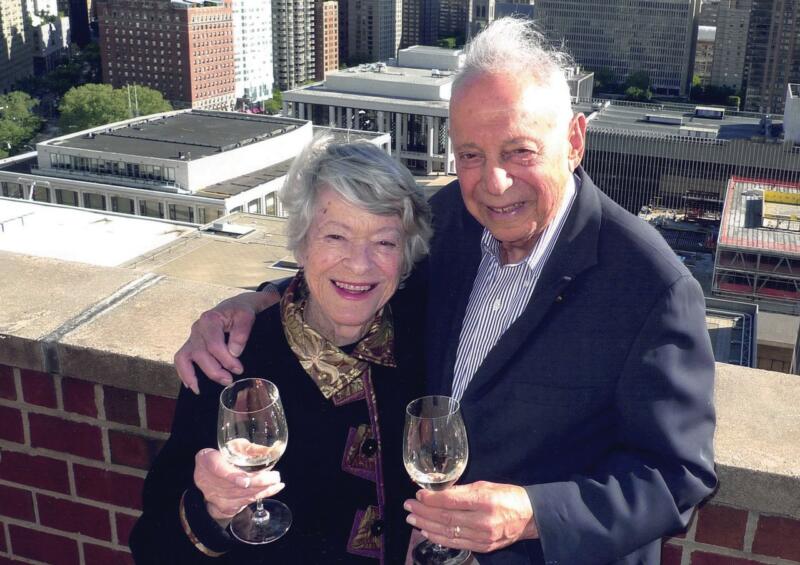
Lillian and Maurice Barbash
The competition is open to violinists, violists, viola da spalla and da gamba players, cellists, and bassists. Why did you and your sister decide to focus the competition on the solo string music of J.S. Bach?
Well, for starters, I am an amateur cellist and grew up playing his Suites, though maybe I should put playing in quotation marks!
Being a newcomer to the competition world, I thought it would be easier to run a competition that didn’t require too many moving parts...that is, the need for an accompanist or an orchestra. We seem to be one of the only competitions that focuses exclusively on this repertoire, though many competitions do include a Bach component. This surprises me since every string player grows up playing Bach, and there are so many ways of interpreting the music. Lucky for us, by focusing on unaccompanied Bach, it was easier for our applicants to pivot to an online format when the pandemic hit.
Uniquely, with each candidate asked only to perform a full Solo Bach Sonata, Partita, or Suite, how do the jury members go about the cross-instrumentation adjudication process? In the past, have their decisions come easily or with heavy discussion?
I have to thank cellist Colin Carr, who has been on our juror panel since the beginning. Each year, Colin has helped the jurors reach a consensus on the judging criteria. For the initial listening round, he divvies up the entries so that our violinist jurors listen to the violin entries, cellist jurors to the cellists, and so on. The entrants who make it through this preliminary round are judged by the entire 5-member panel.
From what I can tell, the panelists have found the experience very enjoyable, and even educational. We have made an effort to assemble panels that include both historical performance specialists and musicians with a more modern focus. As Colin said at our inaugural Finals, “You have to be very brave to perform Bach because everyone has a strong opinion on how it should be played.” As to whether or not the decisions are made easily or only after “heavy debate,” I think that depends on the year.
Last year with the pandemic, you made the decision to hold the competition entirely online, which we happily hosted here on The Violin Channel. Is it looking likely that your final round on December 1, 2021, will be back in person at Stony Brook University?
Yes, we are thrilled that we will be returning to the stage of the Staller Recital Hall on Dec 1 for our Finals — and yes, the Finals will again be streamed on the VC. I suppose we have the pandemic to thank for the proliferation of streamed performances. What a gift to music lovers from the world over!
We are also excited that our host, Stony Brook University, is inaugurating its own mini-Bach Festival this fall. We like to think that the success of our competition inspired Stony Brook’s Music Department to host this series. As it happens, this year marks the 300th Anniversary of the publication of the first Brandenburg Concerti, so there are plenty of good reasons to perform more Bach.
What qualities, both musically and personally, do you feel the jury is looking for in the first prize recipient?
This question sent me looking for your interview with Colin Carr who, when asked the same question, replied “Of course they need to be masters of their instrument, but it was clear last year that the jury would not settle for that alone. Character, personality, a compelling engagement with the music, and as I said earlier, a voice that is able to communicate Bach’s language with vision and imagination. We are looking for a performance that is deeply personal, committed, thoughtful, and full of life. In short, irresistible!”
This will be the third year you’ve hosted the competition. How have the careers of your two previous winners continued on since their time with you at the competition?
Our inaugural winner was violinist Rachell Ellen Wong. A few days after winning our competition, she was awarded a prestigious Avery Fisher Career Grant, the first baroque artist to do so. She was also the recipient of the Bach Soloists’ Jeffery Thomas Award. Despite the pandemic, Ms. Wong managed to stay very active on both coasts with performances of Vivaldi’s Four Seasons in Seattle and NYC. She just joined the roster of CTM Classics, as has her ensemble, Twelfth Night, which she co-founded with pianist and harpsichordist, David Belkovski.
Last year’s winner, the French cellist Maxime Quennesson, was just selected as one of 8 semi-finalists in the international Concours de Geneve Cello Competition. I think this must be one of the most arduous competitions out there. Of course, we hope Mr. Quennesson will be chosen as one of the four finalists. He is a superb artist with a thriving career in Europe. We are looking forward to the day we can host his American debut.
What are you and your sister most proud of, when it comes to this event?
It is so gratifying to see that we are already attracting young musicians who are the crème-de-la-creme of their generation. We are also pleased that we have been able to assemble distinguished juries each year. When I first set out to establish this competition, I was advised that no one would take us seriously if we did not have well-respected jurors. We were very fortunate to have the support of the Stony Brook Music Department and members of the Emerson String Quartet who have helped us recruit our wonderful jurors. Now that we have something of a reputation, we have been able to recruit the leading Bach specialists of the day, including Stanley Ritchie, Robert Mealy, Marilyn McDonald, and Arthur Haas.
I am also proud/relieved that we were able to pivot to an online format last year. I owe a big shout out to my friends at the VC who suggested I get advice from Marcy Straw, Executive Director at California Music Center, which hosts the annual Klein String Competition. Marcy could not have been more generous with her time.


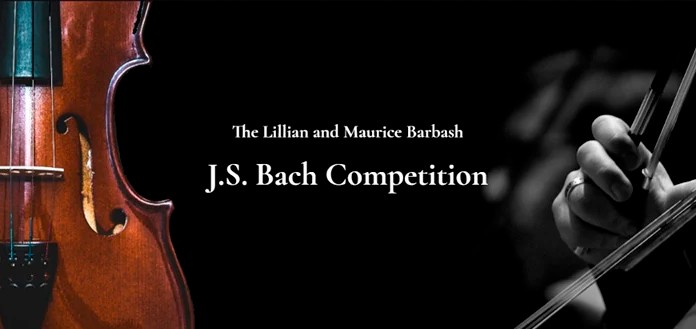

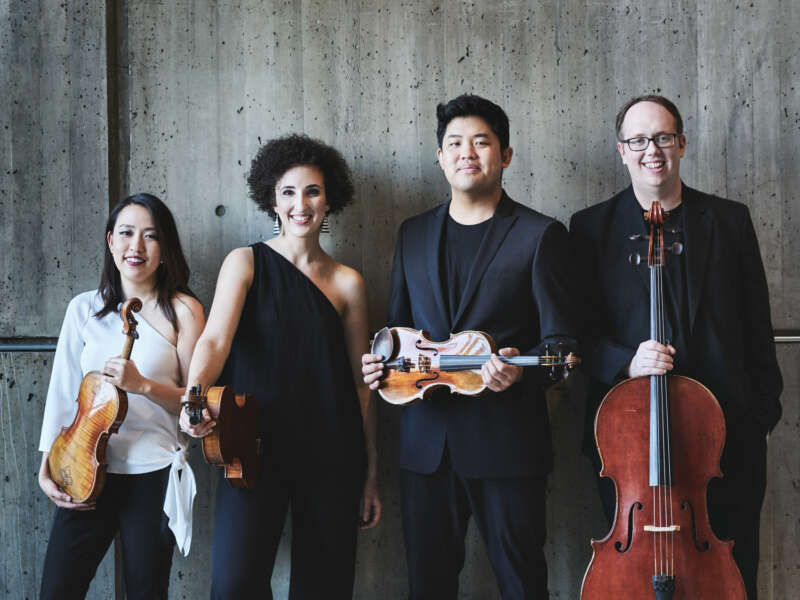























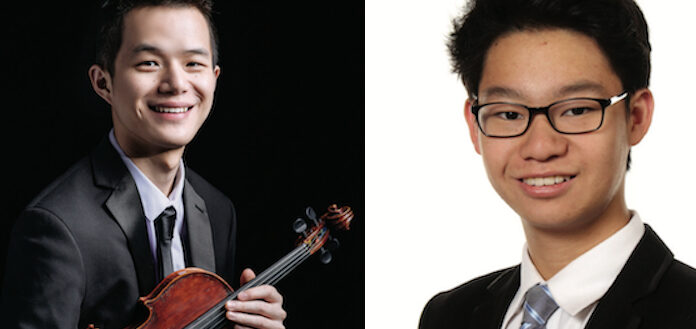
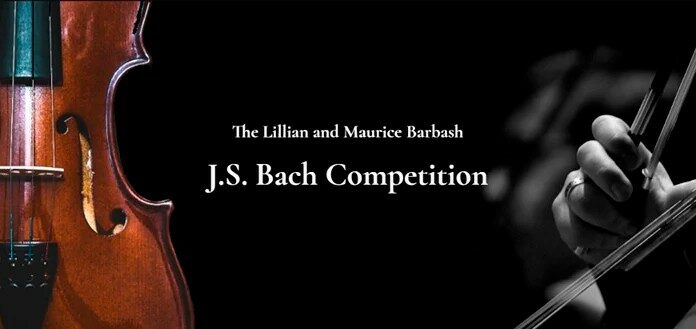
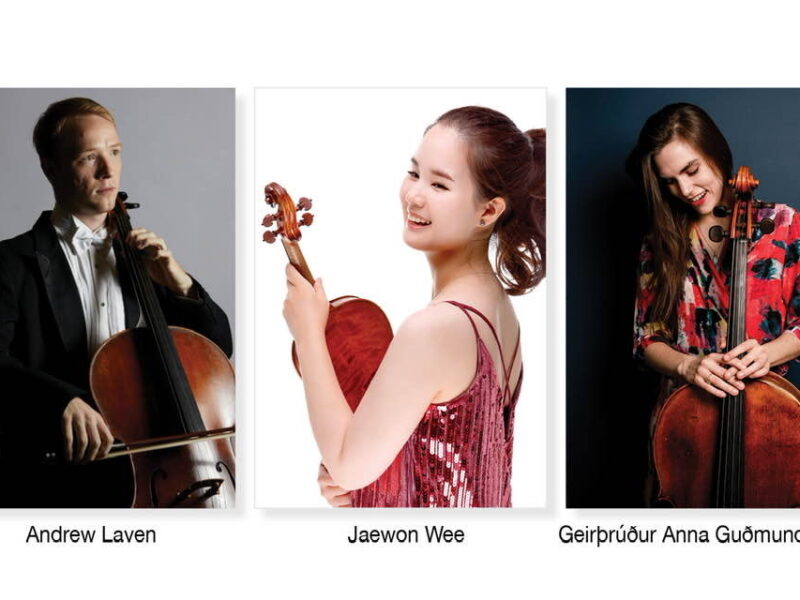
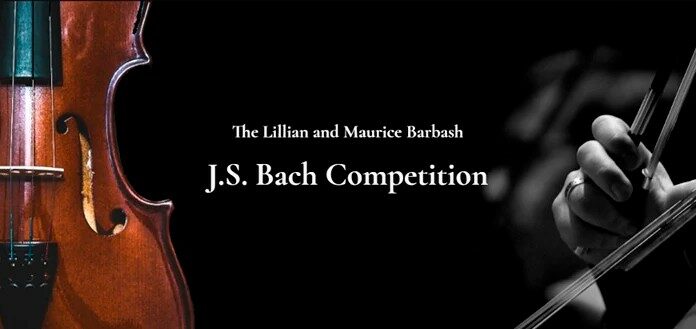
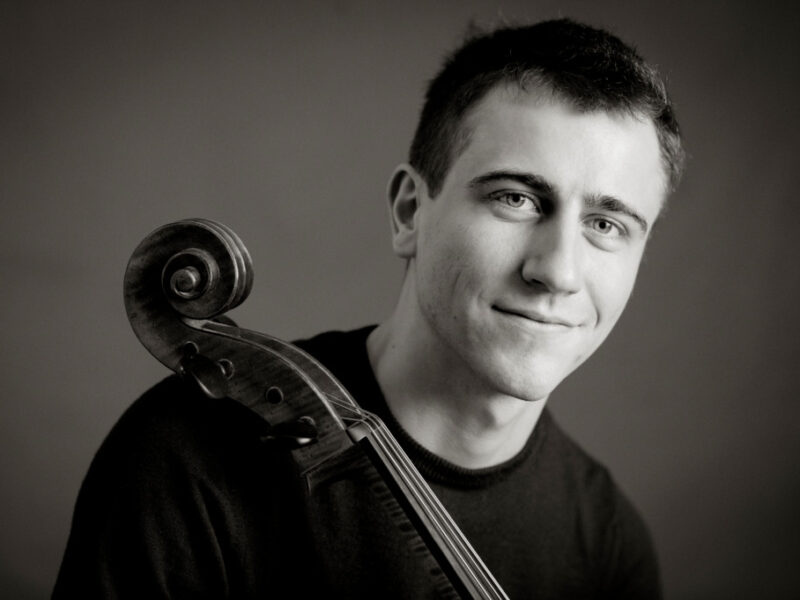
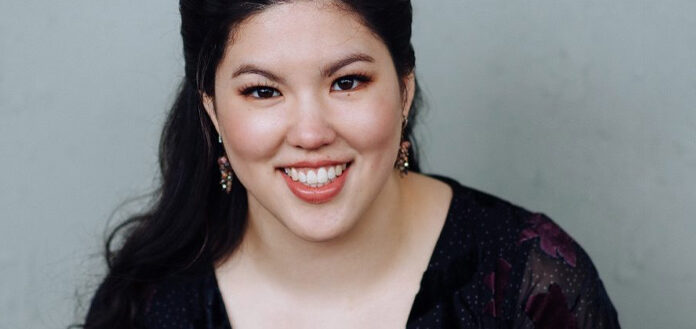
![Applications Open for New York's Barbash J.S. Bach String Competition [APPLY] - image attachment](https://theviolinchannel.com/wp-content/uploads/2020/05/Barbash-Competition-800x600.jpg)
